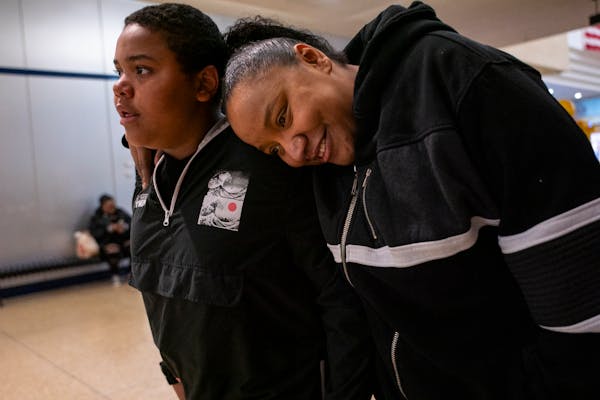When the Twins held a press conference on Saturday afternoon to officially announce the signing of Japanese infielder Tsuyoshi Nishioka, space was scarce. Patrick Reusse put the frenzy into perspective: "The formal interview room, which was built with the idea of hosting the media crowds for postseason games, was jammed to the point CEO Jim Pohlad took in the event while standing against the far wall."
Yes, the Nishioka era has begun in Minnesota, now that he and the Twins have officially reached agreement on a three-year, $9 million deal (with a $4 million option for 2014). Accounting for the $5.3 million posting fee and $250,000 option buyout, the Twins' commitment to Nishioka essentially amounts to $15 million. That's no chump change, but the team will likely find it a sound investment from a financial standpoint. The addition of a star Japanese player -- the first in franchise history -- will help build excitement among the fan base while greatly increasing the Twins' international appeal.
The more important question for hardcore fans is whether the team will find Nishioka's three-year contract a sound investment from a competitive standpoint.
I hope they do. I hope Nishioka can present an exciting new dynamic for the Twins' lineup, adding himself to a select list of successful transitions from Nippon Professional Baseball (NPB) to the major leagues. I hope he becomes an asset at the plate and in the field, and a fan favorite. I hope that by the time he's eligible for free agency in three years, he's a hot commodity.
But hopes are different from expectations. And I'd be lying if I said I expected any of that. There's just too much evidence leading me in the other direction.
Nishioka catapulted himself to a new level of stardom by winning the Pacific League batting title last year, hitting .346/.423/.482 with 11 home runs, 59 RBI and 22 stolen bases as a 25-year-old. He is also a five-time All-Star and three-time Gold Glover. These numbers have been widely touted by folks trying to stir up excitement over his acquisition, but they overlook an important fact: the level of play in NPB is roughly equivalent to Triple-A, and it's possible that even that's being generous.
As an example, consider the case of Matt Murton. You might remember his name; he was a rather unexceptional big-league outfielder who scraped together a .286/.352/.436 career line while spending time with the Cubs, Athletics and Rockies -- mostly as a backup. Prior to the 2010 season, he signed a contract with the Hanshin Tigers of NPB and in his first year there he hit .349/.395/.499 with 17 home runs and 91 RBI over 144 games. As a major-leaguer, Murton had managed just 29 home runs and 112 RBI in 346 games.
If Nishioka can approximate Murton's big-league production while adding strong defense, he'd be a great get. But Nishioka's 2010 season stands as an outlier in an otherwise unspectacular NPB career. In the three years prior, he'd amassed a .287/.361/.427 line; while those numbers aren't bad, no one would get excited about seeing them from a Triple-A player. It is possible that Nishioka, who's just entering his prime years, turned a corner this past summer, but his production was largely fueled by his high batting average, which itself was propped up by an unsustainable .389 batting average on balls in play. Before 2010, he was a .284 career hitter.
Unless Nishioka carries over his great luck from this past year or makes meaningful improvements at the plate, his realistic upside is probably league-average offensive production (last year, for second basemen, that equated to .265/.330/.389). That kind of performance would be worth the price tag if it's coupled with above-average defense. But what to expect from Nishioka defensively is anyone's guess.
The fact that he's won three Japanese Gold Gloves, two of them at shortstop, should be taken with a grain of salt. Kaz Matsui won four NPB Gold Gloves, all at shortstop, but his defense at the position was considered so dreadful in the States that he was moved to second after one season. As another example, Akinori Iwamura won six Gold Gloves in Japan and was considered an ordinary fielder here.
Of course, the fact that neither of those players excelled defensively in the majors doesn't mean Nishioka can't. The Twins have always placed considerable value on infield defense, and likely wouldn't have made this bold move if their scouts didn't think he was capable. It's just important to keep in mind that, historically, great defensive reputations have not often carried over from NPB to MLB.
It's easy to get caught up in the Nishioka hype. He adds a unique new aspect to the franchise, he fills up press conferences and he's starred in an Adidas "Impossible is Nothing" ad. But among all that glitz and glamor, there's also the viewpoint of former MLB and NPB pitcher C.J. Nitkowski, who reacted to the lucrative signing by remarking that "AAA & AAAA middle infielders are wishing they were Japanese imports." (In other words, stating that Nishioka's talent level is really no different from an American player who stands out at Triple-A but isn't quite fit to be a regular in the major leagues.)
I want Nitkowski to be wrong. My hopes for Nishioka are set high. But my expectations are set considerably lower, to the point that he'd exceed them by turning into a league-average MLB middle-infielder.
Those expectations aren't very exciting, I suppose. But hey, that's what hope is for.

Minnesota Sports Hall of Fame: A class-by-class list of all members

This retired journalist changed professional wrestling from Mankato

